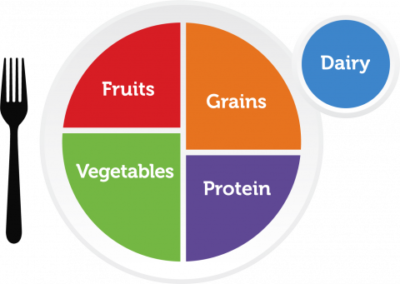Pregnant people tend to have a lot of questions about weight gain, weight loss, and healthy eating during pregnancy. Get Wise below about the Top 6 Questions Pregnant People Tend to Ask About Their Weight:
1. I’m Puking My Brains Out and am LOSING Weight. Is This Bad for The Baby?
2. I’m Overweight/Obese. Do You Have Any Weight Loss Tips For Me?
6. Remind Me, What’s the Recommended Weight Gain During Pregnancy?
I’m Puking My Brains Out and am LOSING Weight. Is This Bad for The Baby?
Remember, your developing baby is essentially a parasite and will take what he/she needs. Persistent vomiting is, therefore, more likely to affect YOU, than your fetus.
If you have horrible morning sickness and are puking your brains out, there’s a risk that you could become dehydrated and develop an electrolyte imbalance (think: low sodium and potassium). If you’re concerned about your morning sickness, let your doctor know.
The Good News:
Even bad cases of morning sickness typically resolve during the second trimester. After that, most pregnant people are able to take in enough nutrients to support themselves AND their developing babies.
I’m Overweight/Obese. Do You Have Any Weight Loss Tips For Me?
54% of women of childbearing age are either overweight or obese, so you’re not alone.1
If You’re Overweight or Obese, Try the Following:
- Talk to your doctor about your concerns and consider seeing a nutritionist.
- Try to limit (or swear off) “empty calorie” foods like sodas, chips, crackers, cookies, and fast foods.
PediaTip:
Although you may have been told to curb your weight gain during pregnancy, avoid crazy fad diets. It’s not just about the weight, it’s about health, too.
I’m a Fan of Low-Carb Eating. Do Low-Carb Diets Get the Thumbs-Up During Pregnancy? What About Low-Fat Diets?

Low-Carb Diets:
While low-carb diets are all the rage, they’re not healthy during pregnancy. Ideally, carbs should make up 55-65% of your daily calories when you have a bun in the oven.
Why Are Carbs So Important for Pregnant People?
Because they:
- Provide them with much-needed energy.
- Are a good source of fiber (a weapon against constipation).
- Cross the placenta and help fuel the baby’s growth.
Insider Info:
Just because carbs are an important part of the pregnancy diet, doesn’t mean you have to carb load with pasta, pizza, and rice. The quality of the carbs is important, too. Focus on eating complex carbs such as beans, whole grains, and vegetables.
What about Low-Fat Diets. Do They Get the Green Light During Pregnancy?
No. Avoid low-fat diets during pregnancy.
Why?
Because fat is an important building block for your baby’s nervous system (think: brain).
- Fat should make up roughly 30% of your calorie intake.
- As with carbs, you don’t have to stuff your face with French fries and potato chips to meet your fat quota. Opt for the “good fats” (i.e. monosaturated fats such as nuts, olives, and avocados) instead and limit the less desirable (but tasty) saturated fats (e.g. red meat, butter, and cream).

Blast From the Past:
Remember the good ol’ food pyramid? Back in the day, it was the Holy Grail for how to eat a balanced diet. Well, now it’s out and “My Plate” is in:

Source: MyPlate.gov
If you’re interested in learning more about how to create a balanced diet, go to the MyPlate website. It’s chock-full of helpful info. There’s even a handy-dandy app version (MyPlate app).
I’m Underweight and Am Worried About Packing on Enough Pounds for My Baby to Be Healthy. Do You Have Any Advice For Me?
Your baby will take what he/she needs to be healthy. Of course, we don’t want you getting depleted either.
If You’re Underweight, Consider Seeing a Nutritionist and Try the Following Quick Tips to Boost Calories:
- Drink whole milk.
- Eat full-fat yogurt.
- Drink smoothies.
- Add 1-2 snacks (e.g. nuts) to your diet each day.
I Have a History of (or Currently Have) an Eating Disorder (e.g. Anorexia or Bulimia). Gaining Weight Stresses Me Out. What Should I Do?
Pregnancy can be triggering for people who’ve had an eating disorder or are currently embroiled in one. It’s important to ask for help and to voice your concerns and fears along the way.
Here are Some Tips for How to Move Forward:
- Be open and honest with your provider.
- Build a support team.
- Pick a person to confide in when things get squirrely.
- Consider seeing both a nutritionist and a therapist who specialize in eating disorders.
- And remember…pregnancy is an opportunity to see your body in a new light. Instead of seeing your body as a source of shame or angst, view it as a source of life.
Remind Me, What’s the Recommended Weight Gain During Pregnancy?
Moms-to-be typically gain 3-5 pounds during the first trimester. For the 2nd and 3rd trimesters, the “ideal” amount of weight that you gain depends on your pre-pregnancy weight and your BMI (body mass index).
Check out the chart below to see which of the 2nd and 3rd trimester weight gain recommendations apply to you. (To calculate your BMI, click here).
| Pre-Pregnancy Weight | Recommended Weekly Weight Gain During the 2nd and 3rd Trimesters (in pounds per week) | Total Recommended Weight Gain During Pregnancy (in pounds) |
|---|---|---|
| Underweight (BMI <18.5) | 1-2 | 28-40 |
| Healthy Weight (BMI 18.5-24.9) | 1 | 25-35 |
| Overweight (BMI 25-29.9) | ½ | 15-25 |
| Obese (BMI 30+) | ½ | 11-20 |
Source: Chart Partially Reproduced from ACOG’s Guidelines on Weight Gain During Pregnancy.
Reality Check:
For those of you ready to hit the all-you-can-eat buffet after seeing the numbers above, slow your roll.

Unfortunately, most pregnant women only need an extra 300 calories per day (i.e. a single chocolate croissant at Starbucks) to reach their target weight gain.
The Bottom Line
When it comes to weight gain during pregnancy, be kind to yourself and listen to your body. Women often lose weight in the beginning of pregnancy when they’re nauseous and barfing up a storm. They usually make up for lost time, though, during the second and third trimesters. You don’t have to gain exactly the right amount of weight at exactly the right time, just try to get somewhere in the ballpark. If you’re underweight or you have an eating disorder, talk to your doctor about your concerns and consider seeing a nutritionist as well.





